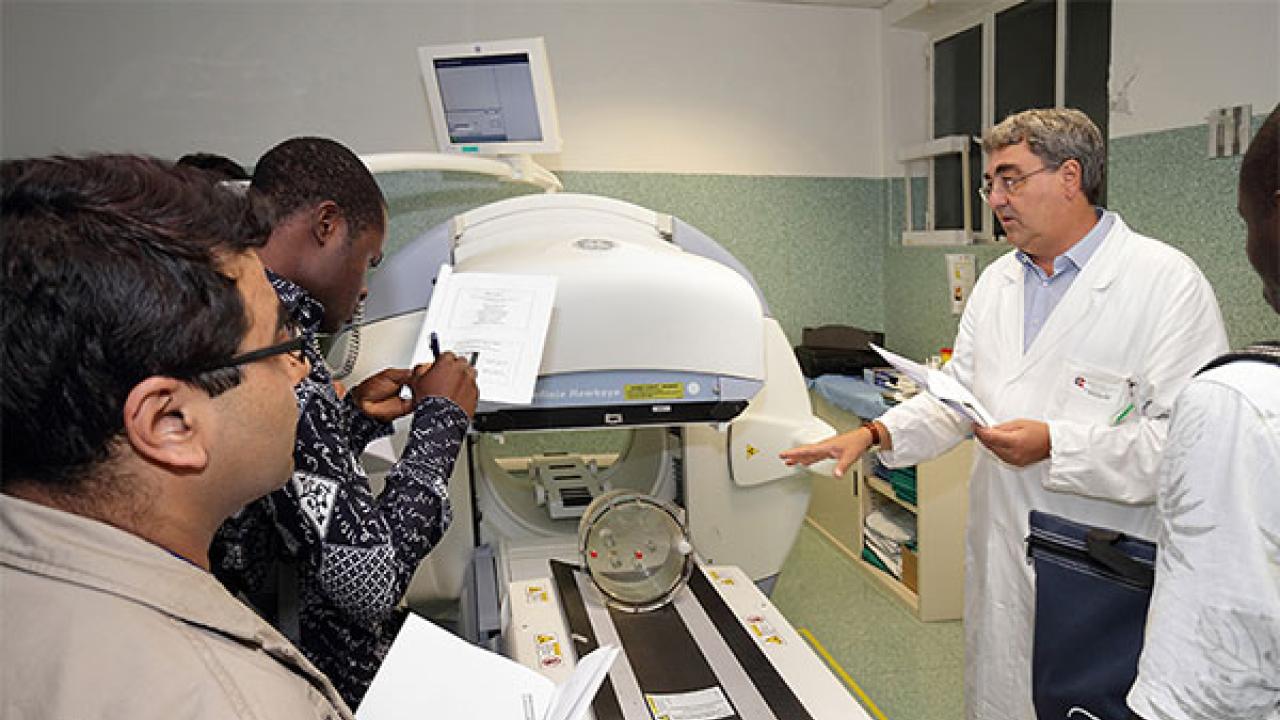
Thirteen students from 11 developing countries are the first to complete a Master's in Medical Physics (MMP) degree programme run jointly by ICTP and the University of Trieste. In addition, one of ICTP's UN partner agencies, the International Atomic Energy Agency (IAEA), has announced a generous increase in its financial support of the programme.
The students will receive diplomas during a graduation ceremony to be held at ICTP's Budinich Lecture Hall on 11 December at 10:30. Speakers at the ceremony will include ICTP Director Fernando Quevedo, University of Trieste Rector Maurizio Fermeglia, IAEA Head of the Dosimetry and Medical Radiation Physics Section Ahmed Meghzifene, and European Federation of Organizations in Medical Physics (EFOMP) President John Damilakis.
The two-year MMP programme, which is also supported by the World Academy of Sciences (TWAS), is designed to provide graduates of physics or related fields (mainly from developing countries) with postgraduate theoretical and clinical training so that they may be recognized as clinical medical physicists in their home countries. The courses were developed in collaboration with the International Organization for Medical Physics (IOMP) and the European Federation of Organizations in Medical Physics (EFOMP), in collaboration with Trieste hospitals.
Luciano Bertocchi, scientific consultant at ICTP and one of the driving forces behind the medical physics programme, says that formal master's level training in medical physics is almost non-existent in many developing countries. He points out that filling this gap is crucial, because medical physicists play an integral part in treatment and diagnostic procedures for life-threatening conditions such as cancer and are required to handle precision equipment like radiotherapy machines. Renata Longo, professor at the University of Trieste and one of the programme directors, says that the idea is not only to train the incoming students but also to equip them with skills that they can use to improve the medical physics culture back in their home countries.
The IAEA, which has supported the programme since its start in 2014 by providing educational materials and financial support, has increased its monetary contribution significantly for the upcoming 2016/2017 academic year, allowing the programme to offer fellowships to 18 students. The highly competitive course of study receives more than 300 applications each year.
MMP students spend the first year of their education in Trieste attending lectures at ICTP and the University, while the second year is dedicated to clinical professional training in a medical physics department of a hospital in the programme's training network. For more details see the MMP website.
















